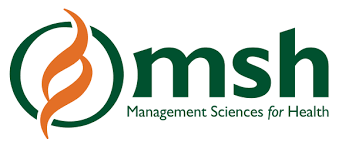Management Sciences for Health (MSH) takes a systems approach to strengthening family planning (FP)/reproductive health (RH) care, working with local service providers and local and national government agencies to deliver consistent, sustainable, high-quality services. We support service providers to take an integrated service delivery approach, embedding FP/RH services within maternal, newborn, and child health, adolescent health; HIV and AIDS; and nutrition services; while ensuring a gender-sensitive approach. MSH works to introduce and scale up proven FP high impact practices, as well as promising new interventions and technologies that support the health and well-being of women and children. MSH also recognizes that leadership, management, and governance is critical to building the enabling environment needed for countries to realize their FP2020 goals.
The USAID-funded ONSE Health Activity in Malawi provides direct support to service delivery in 11 supported districts, which cover 8.6 million Malawians (48% of the total population), generating 831,195 couple-years of protection (CYP) in 2019. At the community level, ONSE strengthens FP services through Ministry of Health and Population (MoHP) integrated family health outreach clinics, a strategy by which the MoHP and ONSE aim to provide integrated health services to clients, especially in hard-toreach areas. Mobile youth outreach clinics offer group and individual counseling sessions on different FP methods and adjust their service delivery model to meet the current demands on services. At the facility level, ONSE utilizes Nested Providers to strengthen provider capacity through hands-on training and supportive supervision.
In Madagascar, the USAID-funded ACCESS Health Program works to increase access to quality FP/RH services. ACCESS currently works in 22 districts to strengthen the capacity of community health volunteers to provide high quality FP information and/or services/referrals to remote populations that often live more than 5km from a health facility, and in 60 districts to build the clinical capacities and communications skills of health workers to provide high quality FP/RH counseling and services. ACCESS also works alongside the Ministry of Public Health and other stakeholders to strengthen the public sector supply chain to ensure reliable access to FP/RH commodities. In addition, the project is supporting the expansion of mobile clinics to further reduce geographic barriers to FP services. And, through various social and behavior change activities and strategies, ACCESS is working to increase contraceptive prevalence among adolescents. In 2019 (July-December), ACCESS reached 276,599 new users (NUs) of modern FP and 1,445,438 regular users, for a total of 264,096 CYP.
MSH also supports FP/RH service delivery, capacity building, and advocacy strengthening efforts in other programs and countries, including Benin and Mali. In Benin, for example, the USAID-funded IHSA project is supporting the Ministry of Health in strengthening FP compliance of service providers; developing standards and training guidelines; and building the skills of providers in providing longacting reversible contraception (LARCs), particularly being responsive to the needs of youth and adolescents.Through these approaches, 39,286 FP NUs were reached in Benin in 2019.







